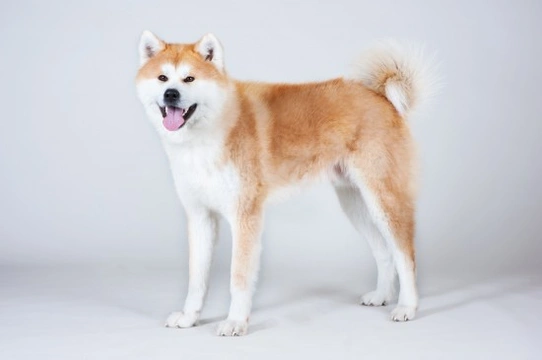
The Akita Inu Dog - A Good Choice of Pet?
The Akita Inu dog originates from Japan, and is one of the largest dogs from within the Spitz grouping. There are two different types of Akita: The Akita Inu, which is also known as the Japanese Akita, and the American Akita, which is a very similar breed but not commonly seen within the UK.
The Akita Inu is a large, strong and very impressive looking dog, which appeals to many different types of dog lovers for different reasons. They are very quiet, calm and dignified, and are considered to be easy to house train too. However, the Akita Inu is one of the most challenging dogs to keep as a pet within a domestic environment, as they have complex, rather dominant and strong personalities that mean that they are not the perfect fit for everyone. If you are considering owning an Akita Inu, read on to find out a little more about the traits of the breed, and some of the pros and cons of ownership.
More about the Akita Inu temperament
The Akita Inu has strongly protective instincts, and sees it as their job to guard and watch over both their family and their home. They have a tendency to be reserved with strangers and not quick to accept strangers on their territory, something that needs careful management.
Akitas also need a heightened level of socialisation with other dogs from a very young age, as they do have a tendency to be less than accepting of other dogs. Particularly, un-neutered Akitas are likely to be very defensive, dominant and potentially even fight with other un-neutered dogs, and so if your dog is un-neutered, they will require constant supervision around others.
The breed is also marked out by the distinction of not being particularly easy to read in terms of their body language. Most dogs will indicate clear signals of dissatisfaction or the onset of aggression, while the Akita will often react quickly in an otherwise calm situation involving another dog, without giving any obvious warning that they are about to snap.
Akitas are not only territorial but very prone to resource guarding, and are unlikely to be willing to share their toys with other dogs, so resources are best left at home when going to the dog park. Akitas are also very dominant over their food, and will not usually tolerate other dogs or people in their personal space when they are eating. This can be particularly problematic if your dog shares your home with children.
The Akita has strong hunting instincts, and generally, will not tolerate living with a cat without making their life a misery! There are exceptions, however, particularly if the dog is introduced to the family when young. As a general rule, however, the Akita is best kept as the only pet within the household.
Training and handling an Akita Inu
It is fair to say that the Akita is one of the most challenging dogs to train, as they are highly intelligent, easily bored, and strong willed. It can be hard to catch and keep the dog’s attention, and training the Akita requires strong, confident and experienced leadership. If you get the balance right when training, you will find that the Akita can be highly amenable to learning new skills, and can retain a wide range of complex commands.
As a large, dominant and confident dog, the Akita needs to be treated with respect, by an owner who is sure of their position as head of the pack and that will not tolerate power plays or messing around. Ambiguous commands, teasing or unclear leadership will all lead to the Akita walking all over you where training is concerned!
Akita Inu exercise requirements
The Akita Inu enjoys brisk walks and periods of off the lead play, but despite their size, they do not need to spend hours and hours each day running flat out.
Akitas also thrive in cold weather, so if you enjoy walks and runs on brisk winter mornings and are not afraid of a bit of snow or ice, the Akita will be happy to match you step for step.
Pros of owning an Akita Inu
- They have thick, luxurious coats that can stand up to even the coldest of weather
- They are large, powerful and robust dogs with an attractive, wolf-like appearance
- They make good guard dogs and deterrent dogs
- They are relatively quiet and not prone to barking
- They are self-reliant and not clingy
- Their exercise requirements are not complex or vigorous
Cons of owning an Akita Inu
- They are strong-willed and can be challenging to train
- They may be aggressive if not properly socialised and managed
- They need careful socialisation and supervision around other dogs
- They can be very possessive, and will often see themselves as dominant over children
- Best kept as a lone pet
- They are extremely heavy shedders, and drop a lot of fur
- Can be expensive to insure



